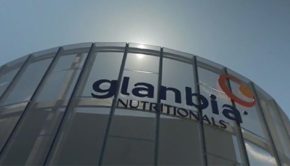In defence of value

There’s no such thing as good cheap food. Glanbia’s Consumer Foods chief says re-educating the Irish about real value for money is key for the future
20 April 2009
This year Glanbia announced "satisfactory" results for its Irish Consumer Foods division in 2008, and a 7.5% decline in revenue for its whole business in Ireland.
While Food Ingredients Ireland experienced the worst performance across the entire global business, Consumer Foods did well to recover the margin lost during a challenging 2007, sending operating profit up 68% and operating margin up 310 basis points, from 3.8% in 2007 to 6.9% in 2008.
As the environment turned decidedly colder in the latter half of last year, the ability to deliver growth and improve operating profit and margin position shows considerable resilience on the part of the division.
Following several consecutive years of rising costs, succeeded by a severe economic slowdown, Consumer Foods chief executive Colin Gordon thinks the group is on course to cope with more challenging times ahead.
Would you say that competition in the Irish consumer foods sector has strongly intensified over the last 10 years?
It has become significantly more intense. In many ways the economy, the consumer and the overall trading environment are almost unrecognisable from what they were 10 years ago.
There’s more shops open; the offer available and the range of goods and services, the way that the consumer shops, all show a significant difference. And despite all of that the total volumes of food sold through retailers hasn’t increased to the same extent as in other areas of the economy during those ‘tiger’ years. While there has been good growth it hasn’t been exponential and certainly wouldn’t be reflective of other growth that has taken place in the economy.
How has Glanbia responded to the changing environment in Ireland?
We’re looking at innovating in our business and restructuring and reorganising our basic business model, in response to the more immediate changes particularly. What we’ve seen over the last year and a half perhaps is a significant cry for help from retailers, from store managers and store operators, who are now really trying to get the maximum return out of their stores.
There needs to be a significant refocusing on the basics, such as availability, proper range-management, and real value, which is not all about price but about good communication about what people really want, and customer service generally. We’re now reorganising our business to respond to that particular dynamic. We’re reorganising our sales force, our marketing spend, our promotional and sales activity, and indeed our innovation agenda, to be better prepared and better able to face up to all those issues.
Glanbia products are number one in five Irish grocery categories; do you believe this positioning arises principally from innovation or brand loyalty?
If you assumed that approx 10% of the Irish population is either returned immigrants or non-national over the last 10 years, you must presume therefore that the consumer dynamic has changed in a way that you could never attribute it simply to the old Irish fondness of brands; you can’t take any of the old adages or old notions of the Irish consumer for granted at all.
We are different in that we’re the only company that is committed to developing a liquid milk strategy. That’s important because milk is the single biggest category within the grocery business in Ireland. It’s an item that people have to have in their homes, something they have to have in their places of work, and in their foodservice operations.
So for the last three years we’ve been very focused on delivering our Avonmore message; through Weatherline, through the development of the Super Milk brand, with the development of Super Milk 2 Litre. There’s been a huge amount of innovation in our cream business, including the fantastically successful Baileys Whipped Cream, which came out last Christmas. And indeed by our acquisition strategy over the last four years, including buying the CMP milk business in Cork.
When it comes to our other businesses, including brands such as Petits Filous or Kilmeaden Cheese, they stand out as being real heroes of the Irish grocery market. And while things are tough and challenging in those markets, we do believe we have fantastic brand positions which have been nurtured over a number of years and which will be reinforced in the market again.
Following the tough cost environment of 2007/08, Glanbia launched a drive to restore margins through price recovery and cost management; were the 2008 results on target?
We recovered the price anomaly that had occurred; we are absolutely required to use price to recover the extra costs we’ve been carrying as company for many years. Not just on account of commodity price increases in ‘06 and ‘07, and indeed through ‘08 as well, but also all the other increases that we’ve carried within the company; national wage agreement, extra costs for materials, extra cost of trade activity, significant extra distribution insurance and communications charges, along with oil-based charges and all kinds of energy-related costs.
So a significant amount of our strategy last year went into recovering costs that we’ve borne within our own system for many years, and we were able to do that and it was the right thing to do to protect the business. Coupled with that we were very focused on ripping costs out of our business and we announced a very significant cost reduction programme at the time of our annual results in the last number of weeks.
Will the business follow a similar strategy in 2009?
That [cost reduction programme] picks up on a lot of the planning and execution that went on through ‘08 and the beginning of ‘09, and that’s continuing on plan. Unfortunately, in the order of 180 employees are directly affected, through plant closures, plant reorganisations, sales force reorganisations to put more people out on the ground, and a significant number of changes taking place in management and in finance administration and clerical support.
But that all goes to help maintain margins while we’re out there investing in the business. One thing that we’d say, and is paramount, is that we believe in the brand, we believe in the business model, and we would do anything we can to support that. I will do whatever is necessary to guarantee the best possible quality products, the best quality brands, the best communication with consumers, and not to take any chances on any of it for the sake of a short-term position.
Do you believe there are opportunities this year for Irish food manufacturers and suppliers?
Absolutely. You can’t deny that there are huge challenges out there but fundamentally we have to look at things in a positive way. We are offering nutritious, fresh, wholesome products to consumers of all ages and geographies. That is a fantastically powerful and positive position to be in and it gives us a lot of optimism, because people are still eating.
They want good nutritious products and they want real value in their food and in their beverages. They don’t want cheap products necessarily, they want good value and that’s a huge learning that’s come out over the last year or so. I think if you can provide people with really good reasons for purchasing a product and fantastic value associated with those brands, then that’s a really positive place to be.
What are the greatest challenges faced by the consumer foods industry in Ireland?
I think the greatest challenge faced by the consumer foods industry generally in Ireland is how to give the proper recommendation of what real value is. All of us as consumers have been force-marched down a price route, in large part by the media and industry commentators and regulators, and by some within the trade too.
The one lesson which we all have to be absolutely on top of is that there is no such thing as a good cheap food policy. Cheap food, for the long-term and in many cases for the short-term, is bad food. Good value is a totally different issue, and I think that is a key message to get across to consumers… I think that, on top of the economic challenge that faces us, it will become even more important to get that right.
Do you believe that retailers and suppliers could collaborate more effectively?
I think that there is a huge amount of collaboration and a much deeper understanding of what everyone’s trying to do than there was in the past, for each part of the equation. There are always going to be issues and discussions as to how best to do that, but I think what’s important to understand, however, is that as much as value is important to consumers, value is also important to retailers, and making sure that we’re using the same language and tone – that we’re not just looking for cheap – is going to be really important, for all our sakes.
What is your personal goal for your division this year, and beyond?
I don’t have a personal goal per se. The company generally shares an overall ambition, that is that we will continue on the path set out over the last number of years, to make ourselves a highly recognised and well-regarded food marketing and sales company in this country. I think we’re a long way towards that; we’ve developed very, very strong communications programmes, strong innovations, and a very strong focus on delivering growth in the business. We want to continue that and I think there’s a very strong energy towards achieving it.



 Print
Print






Fans 0
Followers